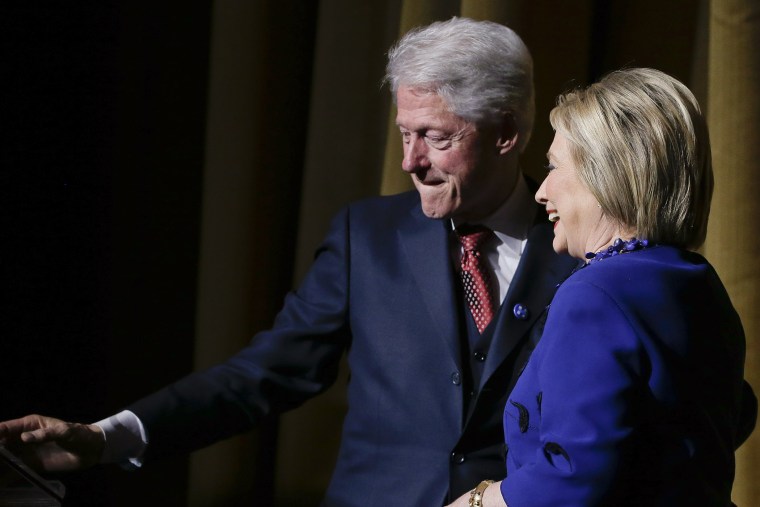In theory, Hillary Clinton arguably has the best Democratic campaign surrogate in the country: her husband. Every presidential hopeful has well known supporters, but only the Democratic frontrunner can have a two-term former president, whom many Democrats are excited to see, appear literally anywhere in the country to sing her praises.
But there are exceptions. Last week in Philadelphia, former President Bill Clinton was confronted by two Black Lives Matters protesters who pressed him on, among other things, the 1994 crime bill. By any fair assessment, the exchanges between Clinton and his critics didn't go well for the former president, who expressed some regrets over the incident a day later.
Over the weekend, Bernie Sanders appeared at an event at the Apollo Theater in Harlem, where he took advantage of the apparent opportunity.
Democratic presidential candidate Bernie Sanders criticized Bill Clinton's public argument with Black Lives Matter protesters, calling his words "unacceptable." [...] "I think that the president owes the American people an apology for trying to defend the indefensible," Sanders said.
In context, "indefensible" was apparently in reference to '90s-era rhetoric about "superpredators" -- a word coined by political scientist John DiIulio to describe a coming wave of remorseless and brutal youngsters who would soon wreak havoc on American society. (They did not, in fact, exist.)
On the surface, having the two campaigns argue about criminal-justice policy is a welcome, substantive shift from some of the nastier and more personal criticisms voters have heard of late. That said, it's unexpected for the 2016 race for the Democratic nomination would focus so much on a 22-year-old law that both of the candidates supported.
Let's unpack this a bit. The 1994 crime bill has, to be sure, earned its controversial reputation. Though many of the needlessly punitive, "tough on crime" policies of the era were the result of state-based governing, the federal law was responsible for creating longer mandatory sentences and reclassifying minor crimes as felony offenses. The effects on many African-American communities, in particular, were dramatic.
But in a contemporary context, many of the key details matter. Bernie Sanders, for example, was in Congress at the time and he voted for the 1994 crime bill, despite having reservations about some of its provisions. As recently as 2006, Sanders touted his support for the controversial legislation as part of his first Senate campaign. (Clinton also expressed support for the law 20 years ago, but she did not get elected to Congress until six years after its passage.)
What's more, though the former president has never formally apologized for the 1994 law, he has publicly renounced some of its more notable provisions.
All of which raises the question of why a decades old criminal-justice law is taking center stage in the 2016 presidential race between Clinton and Sanders, when both of them supported the law in question, and now both have serious concerns about its provisions. The answer, of course, is that Sanders is eager to cut into Clinton's support among African-American voters -- in New York and elsewhere -- and he sees this as an opportunity to do exactly that.
